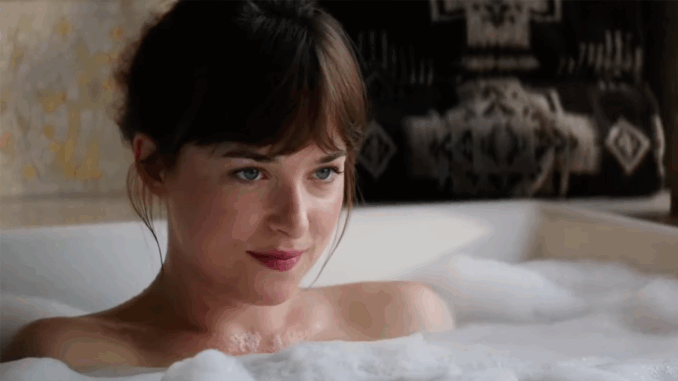
The Fifty Shades films may have catapulted Dakota Johnson into global stardom, but few people knew how much she was emotionally unraveling behind the scenes. At the center of a franchise that demanded both physical vulnerability and psychological exposure, Johnson found herself under constant pressure—and hiding a secret no one expected.
It wasn’t just the tabloids, or the endless scrutiny about her nude scenes, or the intense fan obsession. It was something deeper. During the filming of Fifty Shades Darker, Johnson quietly suffered what she later described to friends as a “silent collapse.”
“I wasn’t okay,” she admitted years later in an off-the-record comment during a fashion shoot. “There were days I couldn’t breathe.”
According to a former set assistant, Johnson would often retreat into her trailer between takes, headphones in, eyes closed, barely speaking. “She wasn’t being difficult,” the crew member said. “She just looked… lost.”
And while no one publicly acknowledged it at the time, Jamie Dornan was the only one who noticed something was wrong—and did something about it.
“He’d bring her coffee without saying a word. He’d sit beside her when no one else dared interrupt her space,” said a camera operator from the Darker set. “He didn’t push her to talk. He just made sure she wasn’t alone.”
One day, while filming the masquerade ball scene, Johnson reportedly became overwhelmed during a moment of intense dialogue. She broke down between takes—but not dramatically. Quiet tears, a trembling voice, and the kind of emotional exhaustion that comes from months of pressure.
Dornan, sources say, was the one who signaled the director to pause. The cameras stopped. No questions were asked.
Later, Johnson said only this: “There were moments I didn’t know if I could keep going. Jamie never asked me to explain anything. He just stood there.”

Many have speculated about their off-screen relationship—were they lovers? Were they emotionally entwined beyond the script? But both have always insisted their connection was professional, respectful, and deeply supportive.
Still, it’s hard to ignore the bond forged in silence.
“He was my teammate,” Johnson later told a reporter, carefully choosing her words. “We had to trust each other in ways most actors never do. And in real life, that trust stayed.”
But after the trilogy ended, their connection faded. Johnson dove headfirst into back-to-back film projects and producing. Dornan, meanwhile, focused on his family and took on radically different roles.
The distance wasn’t out of anger—it was a quiet withdrawal, a mutual understanding that whatever they had lived through, it couldn’t be sustained outside the world of Christian and Ana.
Fans may never fully understand what Johnson endured during those years. Her cool, confident press persona masked the vulnerability she protected off-camera. But those who worked closely with her say that without Dornan’s quiet support, she may have walked away mid-trilogy.
“He grounded her,” said one crew member. “He didn’t save her. But he helped her save herself.”
Today, Johnson is more open about mental health and the emotional cost of fame. “That role changed everything for me. It made me stronger—but only because I nearly broke,” she shared during a podcast appearance in 2024.
As for Dornan, he has never spoken directly about that difficult period—but his silence says enough.
“He’s a good man,” Johnson once said quietly. “People think they know what happened between us. But they don’t. And they never will.”